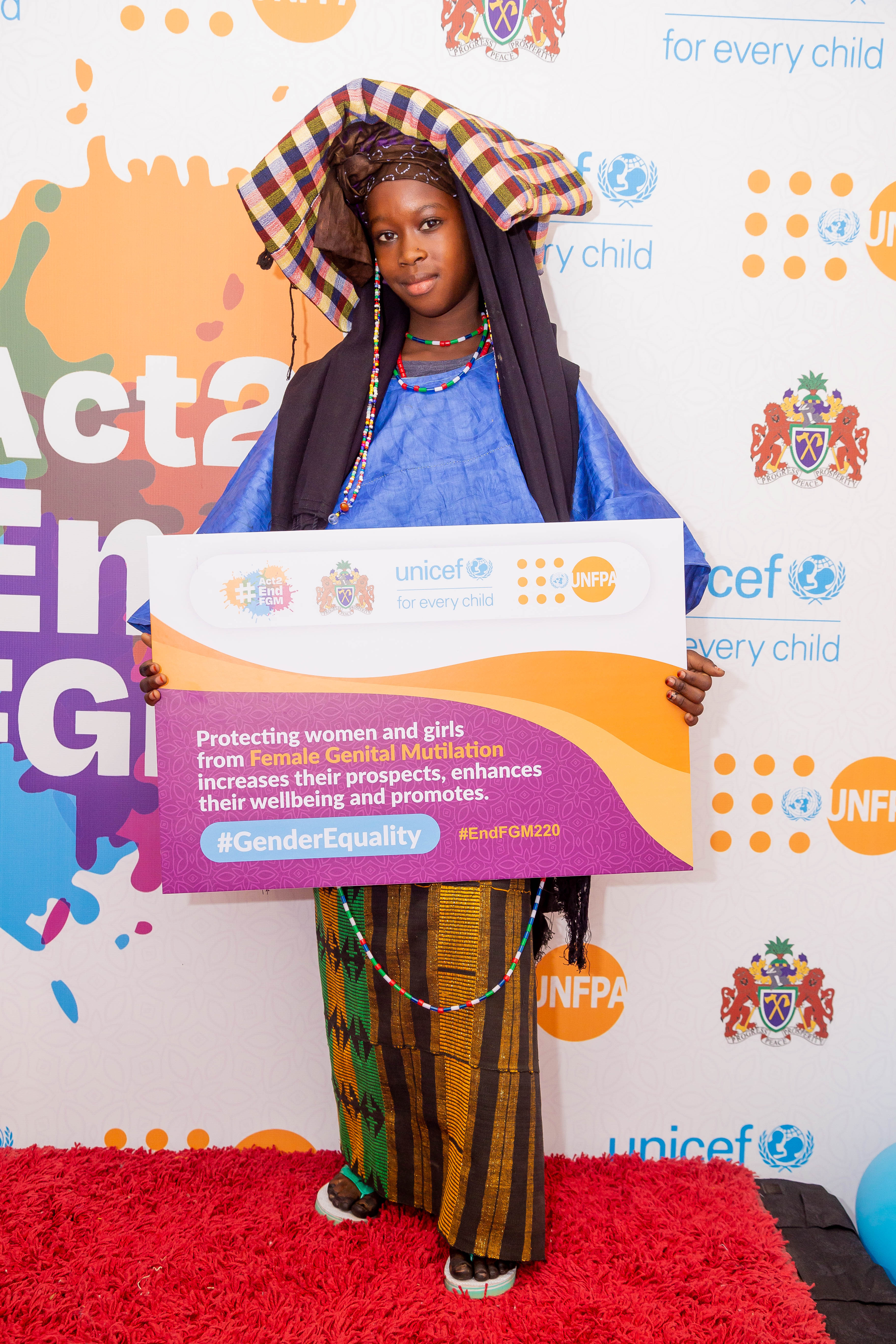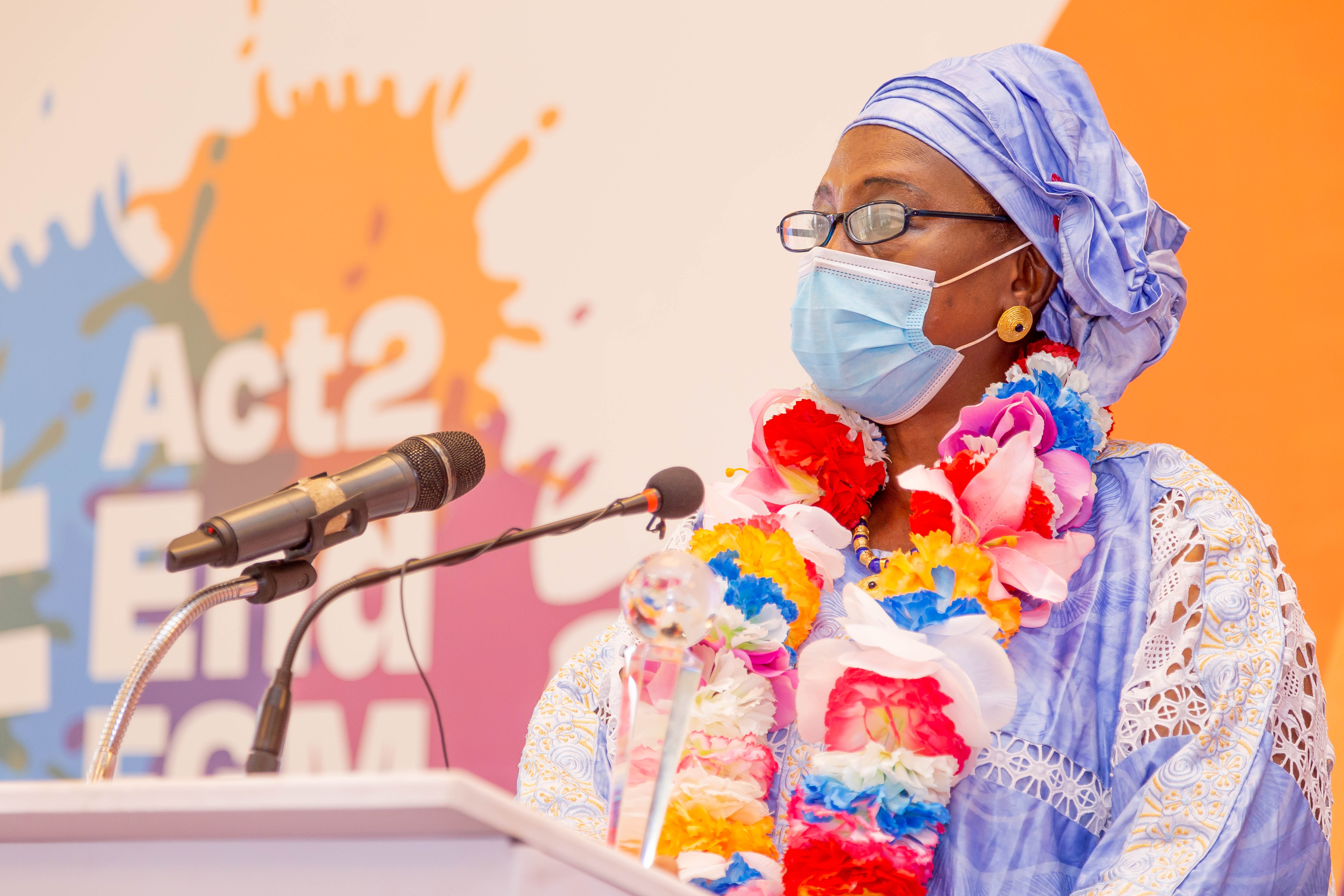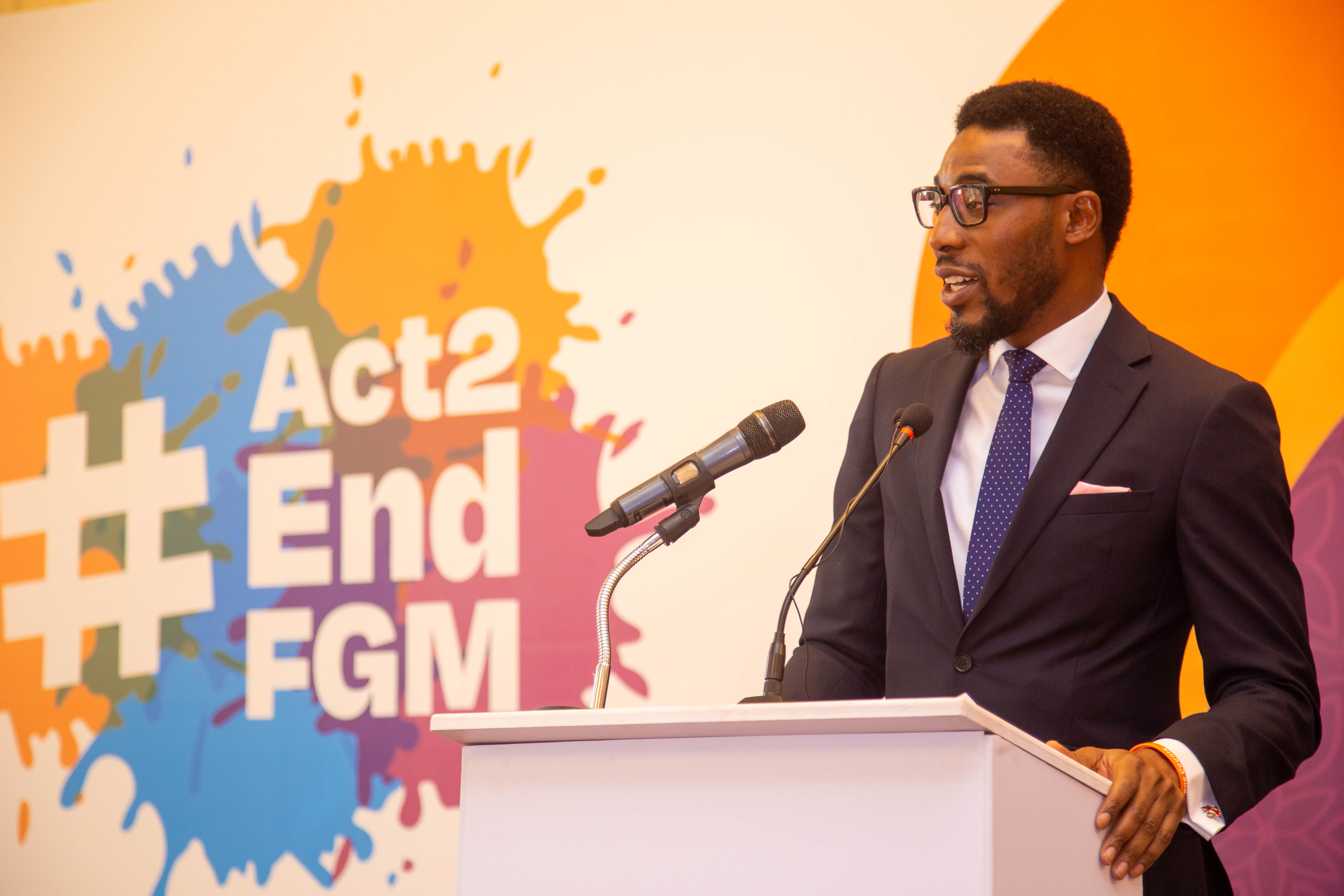It is estimated that 3 in every 4 women and girls in The Gambia today have undergone some form of Female Genital Mutilation (FGM). A practice which has severe immediate and long term consequences on the sexual and reproductive health of women and girls, affects their wellbeing and impedes their development, FGM is strongly rooted in cultural norms and beliefs which inform daily life in many Gambian communities.
Despite significant progress registered in encouraging an abandonment of the practice through community engagement and awareness initiatives, the enactment of legislation prohibiting the practice among others, only 49% of women believe that the practice should stop while the rest believe it needs to continue. This belief in its continued practices is as a result of communities perceiving it to be a religious injunction, that it is a required practice to ensure cleanliness, purity, marriageability and a rite of passage into womanhood.

The emergence of the COVID-19 pandemic has exacerbated vulnerabilities of women and girls and increased their exposure to Gender-Based Violence (GBV) and harmful practices and has particularly created room for increased prevalence of Female Genital Mutilation everywhere around the world and The Gambia is no exception. This is as a result of measures put in place to curb the spread of the virus including the closure of schools and restrictions on movements.
In commemoration of the International Day of Zero Tolerance for Female Genital Mutilation on the global theme “Unite, Fund and Act to end Female Genital Mutilation” UNFPA The Gambia in partnership with UNICEF and the Ministry of Gender, Children and Social Welfare organised a high-level commemoration event on 9 February 2021. The event which brought together Government and Civil Society actors, women’s groups, young people and the media, among a range of others, unveiled 10 “End FGM Champions” who were recognized for their efforts to accelerate the abandonment of the harmful practice in The Gambia. The champions who are already leading grassroots conversations and national level advocacy to support the end FGM agenda in the country, are expected to intensify their efforts and serve as the face of the End FGM campaign in The Gambia.

Speaking at the ceremony, Her Excellency the Vice President of the Republic of The Gambia Dr. Isatou Touray who was also part of the champions, highlighted the Government of The Gambia’s commitment to accelerating its efforts to ensure that women and girls live in health and dignity and are protected from all forms of violence including Female Genital Mutilation.
Reiterating the Vice President’s words, the Hon. Minister of Gender, Children and Social Welfare emphasised her Ministry’s commitment to strengthen coordination of efforts geared towards promoting the abandonment of FGM. She also highlighted the need to strengthen community engagement by working with cultural and religious leaders, women’s groups and other traditional mechanisms in place as they are the gatekeepers of their communities and the custodians of cultural norms and practices.

Delivering his remarks, UNFPA The Gambia Country Representative Mr Kunle Adeniyi, illuminated that every day, girls are being subjected to FGM and more are at risk of being subjected to FGM in The Gambia. To mitigate such risk, Mr Adeniyi emphasised that government must be seen to take leadership in efforts to keep girls in school, ensure they are protected and are given the opportunity to realise their potential. For him, when a girl stays in school, her chances of being subjected to FGM, child marriage and other forms of violence are significantly reduced. While we recognise what needs to be done, we must also commend what has already been done he added.
In her remarks, the Chairperson of the National Women’s Council Madam Isatou Dea Sawaneh, stressed that it is incumbent on everybody in The Gambia to say enough is enough to FGM and other forms of violence perpetrated against women and girls. Women and girls are the backbone of The Gambia and therefore must not be held back by any practice that affects their health and growth, she said.
UNFPA and UNICEF are implementing the Joint Programme on Accelerated Abandonment Female Genital Mutilation, the largest global programme to end this harmful practice, currently focusing on 17 countries including The Gambia and also supports regional and global initiatives.
In The Gambia, UNFPA supports its government and CSO partners to deliver coordinated interventions which seek to engage communities in End FGM conversations, build capacities of law enforcement officials, engage religious and cultural leaders to support the campaign among other investments, in order to mobilise support towards the complete eradication of FGM in the country.
Media contact:
Haddy Jonga - Programme Analyst Communications, UNFPA The Gambia jonga@unfpa.org


